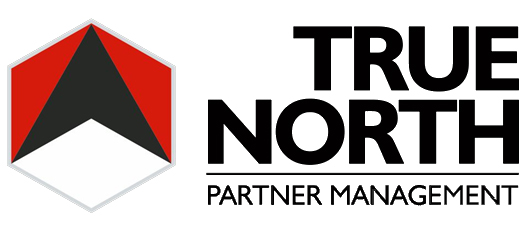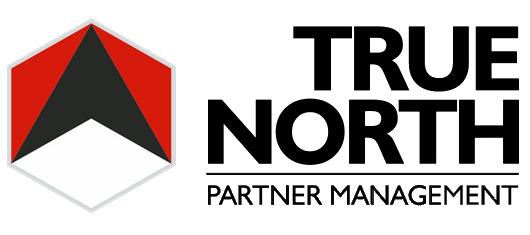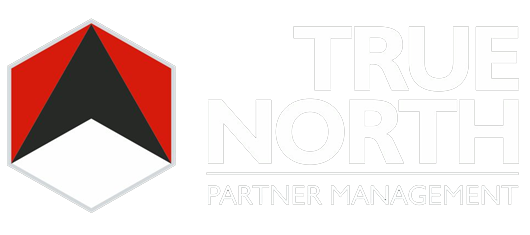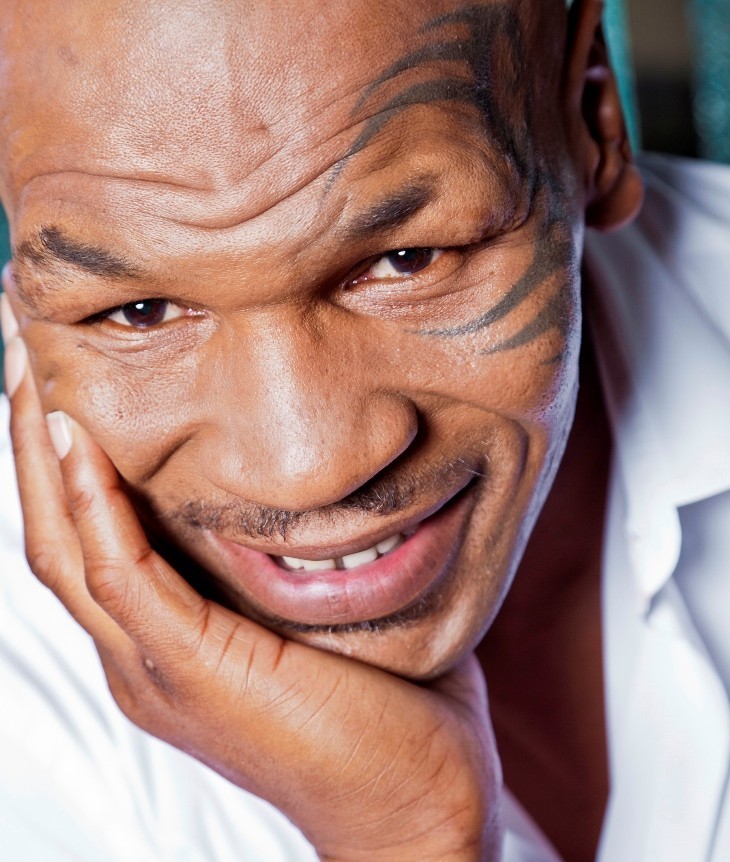The following post originally appeared on Forbes | November 18, 2014
“I’m a bad guy. But if I was a good guy, nobody would want to pay to see me fight.” Mike Tyson – The New York Times
Niccolo Machiavelli is perhaps best known for considering the dichotomy of fear and love as they relate to a ruler gaining and maintaining power:
Upon this a question arises: whether it be better to be loved than feared or feared than loved? It may be answered that one should wish to be both, but, because it is difficult to unite them in one person, it is much safer to be feared than loved, when, of the two, either must be dispensed with.
Recognizable but understated in his deliberation is the challenge of uniting the two within a single person. Looking back over the world’s history, his contention has played out enough times to ring true. Many-if-not-most leaders were better known for camping on one side of the love/fear fence. That being said, it is, at least, one side of the fence that is necessary to take and hold a position of power.
Removing political figures from the equation—tyrants and terrorists in particular—recent decades have not seen a man more thoroughly master the tool of fear than Mike Tyson. Once universally recognized as the most feared boxer on the planet, it isn’t a stretch to say that he was one of the most feared men on the planet, too. And while his actions inspired great fear in his opponents—often deciding the outcome of a fight before it even started—in a genius fashion, he also harnessed his own fears to drive him to the top of the boxing game, hypnotizing the world in the process.
Going back to Machiavelli’s contention, one does not, and perhaps, cannot accomplish this without having a particular mindset: A battery of beliefs and values and experiences to fuel such a state. Mike’s thinking was, at the time, ferocious. And while he was often attacked for it by the media and onlookers, the world refused to look away, underhandedly feeding the persona they feared. His statement to The New York Times was uncannily true.
But, in the words of Oliver Wendell Holmes, Jr., “A mind that is stretched by a new experience can never go back to its old dimensions.” World fame, $300M, brushes with the law, and experiences that could wobble Charlie Sheen will temper a mind. Today, at 48 years of age, Tyson no longer seeks to use and manipulate fear. But through his various businesses and entertainment endeavors, he is adding a whole new suite to his fan base by mastering the other side of the fence: love.
I speak with Tyson today, seeking some of the life and business lessons that an icon might have to offer. In the process, I found, among other things, valuable maxims regarding competition, success, and human nature. See our exchange below:
On Sizing Up The Competition
Parnell: Obviously there are any number of parallels between business and sports: competition, strategy, skill development… It’s been a little while since you last fought, but if you could, talk to me about how you prepared for a fight. How did you evaluate your competition? Was there a particular process you went through? A strategy in order to do that?
Tyson: We watched a lot of films of my opponents. You know, you constantly study them. Try to determine what kind of person he was. How did he handle adversity? We would always look at the personal problems, as well. Whatever personal characteristics he was going to bring into the ring, because that’s just what we do as people: we bring our personal lives into the ring. So, if he was not an enthusiastic fighter, or if he wasn’t a gang fighter, or if he fought better under pressure, or not under pressure; we would dissect him—obviously from a physical perspective, but also from an emotional perspective.
What was most important was the knowledge [aspect] of the fight. I learned this early on and just told myself to “upgrade my mind.” That’s just what I wanted to do my whole life, since I met Cus [D’Amato]. I always watched films. I read old magazines. I read the [boxing] encyclopedia. I would ask Cus questions. Cus was born in 1908. He started fighting in his 20’s. So he met the guys that started fighting in the 1880’s-1890’s, when they were older, and he spoke with them. I would ask him questions. What did they say? How did they feel about the other fighters? What were they like? I immersed my mind in boxing. I made it everything.
On The People He Surrounds Himself With
Parnell: Looking back on your history, you were surrounded by various types of people: personalities, backgrounds, calibers, motivations… Could you talk to me a little bit about the people that you surround yourself with at this point?
Tyson: My team, basically: my family, my wife, and my legal correspondents. That’s my team. Everybody is making the right moves. The right decisions and we’re totally in synch. You know? And what I say about that whole conglomerate, Jo’s [Mignano] involved with that as well, as you may know.
With everything I’ve been through, to me, it’s all about thinking the same: Different individuals with different skills, but we have the same ideology and thinking. Five heads are definitely better than one when they’re thinking in the same perspective. I think that you really need to have people that you trust. And for me, trust comes from that synchronizing, that same-mindedness.
On Moving From Sports To Business
Parnell: You have a number of different projects going: Your one man show, Iron Mike’s Productions, your book (The Undisputed Truth), and now you’re on Adult Swim (Mike Tyson’s Mysteries). Could you talk to me about the similarities between being a professional athlete and being a businessman? What are the attributes that helped you succeed as an athlete that are helping you succeed now?
Tyson: Patience. Sometimes you have to wait for the right deal. They all seem good, at least at first, and they may make you some quick money. But when the right deal comes, and it fits into your [overall] plan, it’s just overwhelming success.
Sometimes, with the long-term deals, you have to take a risk if you’re going to get a reward. It’s exactly like fighting. Sometimes you have to take chances to get that huge win.
Parnell: Okay. And the right deal, what is that for you? What does that mean?
Tyson: For me, it’s kind of like chemistry: you know it when you see it. Just like in boxing, you know the right moves when the opportunity occurs. But you know the right moves because you’ve trained for so long, and so hard, and it just kind of happens—your mind just knows it. For me, in business, you really need to know your stuff, know your game plan, and wait for the right move, the right opportunity, to make that special move that’s going to say “checkmate.”
Parnell: (Laughing) Okay. Alright. So this sounds like, above all, to keep a long term perspective in mind. I mean, there’s a bigger picture here.
Tyson: Exactly. At this stage, for me, I associate myself with very successful people. And because I do that, I never have to ask for anything. I just let them put their arm around me; I let the world see them put their arm around me. This is really important. I do this because of a story I read about J.P. Morgan : There was this young man that came from a very prestigious family, but he couldn’t get a loan. His family told his friends not to give him loans. Well, J.P. Morgan was one of his friends, so he asked him for a loan. And J.P. Morgan, on 5th Avenue, put his arm around him and walked him down the block. He said “Listen, of course you know I can’t loan you any money. I can’t give you a loan. But, everybody on this street from these banks sees me put my arms around you. Now go ask for a loan. There’s nobody that would deny you.”
I never forgot that. I try very hard to associate with successful people. It builds that trust.
On Lessons From Boxing That Carry To Business
Parnell: What are some important lessons that you learned as an athlete, and are thankful to have now as a businessman?
Tyson: To trust my instincts. Never doubt my decision making ability. Confidence has a great deal to do with it. Confidence applied properly is the path of genius. You must always be in a state of confidence. And the way you sustain a state of confidence is by testing yourself. You know? Difficult quagmires that may occur; there’s always a test. You have to seek them out. You constantly have to test yourself to prepare for these quagmires. That’s why I always put myself to the test.
Parnell: So pushing your boundaries? Getting out of your comfort zone?
Tyson: Exactly. You know, you have to feel comfortable being uncomfortable. I’m always comfortable being uncomfortable. And to be comfortable being uncomfortable, I have to hone my discipline, which to me is doing what I have to do, but also doing it like I love it.
Any man can do what he has to do. But doing it like you love it? That is what takes it to a whole different level. A champion does it like he loves it, even when he doesn’t. You know, my touring, for instance. Anyone can get up on a stage. But it makes you nervous. It can be uncomfortable, especially at first. But you do it like you love it, and then the audience loves it, and then, even though you are uncomfortable, then you love it too, and it feeds itself. A champion can do that. A champion does that.
On Lessons He’d Want His Children To Learn
Parnell: In The Hangover Part II, at the end of the movie when you are looking at the pictures on the phone, Stu said, “No one needs to see this stuff.” And you said, “Come on, man! I’m Mike Tyson. I’ve seen everything!”
This was hilarious, but at the same time, true… You have, I’m sure, seen so much more in just a year than most people will ever see in their entire lives. There are a ton of lessons that come along with that kind of experience. With your children in mind, what are the top one or two lessons that you would want them to learn before they turn 18 and leave the house?
Tyson: Man, just to know that kindness and humbleness are really good qualities to possess. You know? But, if you have to use the word humble, it means you’re not humble. And if you’re not humble to this world, this world will thrust humbleness upon you.
Parnell: Hmm. It’s interesting: I just read the part in your book where, unfortunately, your mother passed. And you went home and she told you that you weren’t humble.
Tyson: Mmmhmm. Whoa, man, you hit a nerve. God d@#$. I didn’t think you were going to say that, but yes. Ooh. I was just 14 or 15, you know. At 14, Cus [D’Amato] had put that in my head so much. He saw how insecure I was, and [eventually] I turned into a megalomaniac—she must have thought I was insane. She said, “What are these white people doing to my son?” I told her, “I’m the best fighter in the world. I’m the best boy in the world. I’m the best fighter in the world.” And then she said, “Remember, Joe Louis got beat. There is always somebody better.” And I remember it like it was this morning: I said “Yeah, mom, you’re right. I’m that guy that’s better than everybody else. I’m the guy you’re talking about.”
But that’s just what they taught me, and I had it in my mind: to be confident, and to keep saying that until the confidence appeared. But I took it too far. Confidence did help make me champion, but, man, I took it to a whole different level. I was a megalomaniac. I was not humble and it eventually came back on me. So I want my kids to know, keep humbleness and kindness in their hearts. It will prevail.
On Being Mentally Tough And The Ego
Parnell: No doubt your confidence was a powerful factor in your successes as boxer. Some might say that you have a strong ego as a result—at least that you did in your earlier years. Do you see the ego as a bad thing? As a challenging thing? Or as a tool, something that can be harnessed?
Tyson: Listen, to some people the ego is evil. It gives you so much. It gives you everything you want. But it takes back too much in return. It gives you everything: money, riches, women, glamour, everything you want. But in return it takes back so much, and you’re soulless. That’s its goal. The ego’s goal is to leave you soulless.
Let me explain this to you. I’ve dealt with the ego from so many different angles. It can sneak up on me from a new angle, or something. But now, I’m not affected by it. Because it gave me everything I ever wanted. I just know I can’t pay it back anymore. I can’t give back to it. I’ll be dead, you know? If I could pay it back… if ever I could pay that bill back, I would do it. But I know it’s just a hefty bill. It’s just too much to pay.
We work with discipline. Discipline makes hard men. You know? Discipline makes hard men. Every hard man is capable of being a killer. But every killer is not capable of being a hard man. They can’t endure that much. It’s all about the endurance. That’s why they become killers. Because they can’t endure the pain. They need to kill the pain to stop it.
But without struggle, there is no progress. There has to be struggle in your life. You have to grow in experience to control your ego. Cause, you know, an ego can be crushed, it can be killed, it can be smashed, but it comes back. It never dies. That’s the thing about the ego: it never dies. Next thing you know, you get a nice complement and it starts growing. It starts growing like a weed, a weed that grows and grows. Don’t feed it anything. In order to kill an ego, you can’t feed it anything.
On Performing With Emotion
Parnell: I know that you know the UFC very well. I’m sure you know who Fedor [Emelianenko] is.
Tyson: Awww man, he’s my favorite.
Parnell: Yeah, he is an awesome fighter. His fight style is an interesting juxtaposition to your own. When you were fighting, you were very, very aggressive—very emotional. Fedor is the polar opposite of that: He goes into a fight and his heart rate doesn’t seem to go above 60 beats per minute—even during the fight. You are both incredible fighters, but very opposite in this way. Can you talk to me about the role of emotion in performance?
Tyson: Let me explain that to you, sir. Fighting is spiritual. It appears to be physical from the layman’s eyes. You know what I mean? In my fights, I seemed to be angry and mad—all that stuff you saw me doing, the yelling and screaming and being mean in the ring—but I’m cool as a cucumber. I can hear everybody talking around me outside of the ring. I can see everybody. I know what is going on.
It’s all about calmness and relaxation. My appearance was all an illusion. My appearance is of a mad man, but I’m really calm and collected. Even though I’m fighting, I’m calm and relaxed as possible, despite my displays, because once you get excited, you can’t fight at the highest level of your ability. I use this even today. Emotion is more than just anger. When I am performing, I need emotion, but I need control, too. Emotion drives the best performance and is necessary, but it must be controlled. I believe Fedor does that. I do too. We may look different in how we do it, but we both do it.
On Handling The Media
Parnell: You’ve had some run-ins with the media over the years. How have they been treating you as of recent? What have you learned about dealing with them over the years?
Tyson: I respect the media. But periodically things come up. Like the guy in Toronto [CP24 Interview]. This is what I run into, also. Everybody that helps you is not necessarily your friend. And everybody that fights you is not necessarily your enemy. So you always have to be on guard.
In the scheme of life, in emotion and loss, I responded the way I did. I lost. You know, in my world and Cus’s world, we lost. I shouldn’t have responded that way. I’ve had some people tell me that I did a great thing—sticking up for myself—but to me, personally, with the way that I handled my emotions, I lost. But I learned. That will not happen again.
On Power
Parnell: I saw the video where you were on the jet with Dana White and you punched him in the arm and told him to move over to the other seat. Basically, you kicked him out of his seat. (Laughing) It was interesting to me, seeing these two different types of power colliding: Dana with his position and money and you with your celebrity and physical strength. If you could, tell me your thoughts on power in general.
Tyson: I earned that the strong will always beat the weak, but the smart will beat the strong. Boxing is a tough guy sport. But in the end, the tough guy gets to clean the streets and be a bodyguard. In the ring, the tough guy is going to get hurt; at the end of the day, he’s going to talk funny. Only the smartest win. So, I know it’s cliché, but power—real power—comes from knowledge, comes from smarts.
On Building A Brand
Parnell: Whether intentional or not, over the years of your earlier career, you built an incredibly recognizable brand, or persona. It isn’t a stretch to say that you are one of the most recognizable people in the world.
Today, no longer boxing, but running a number of other projects, it seems like you’re reinventing a new brand, a new persona. Can you talk to me about that?
Tyson: No. No. Listen, it’s not about me reinventing myself. It’s about adapting. When I was fighting, I was a certain type of guy. As a matter of fact, I coined the phrase “baddest man on the planet.” If you look back at it now, with boxers, you never heard of anybody using the word “planet.” They’d say “the world,” or “the country.” I say that I’m the baddest man on the planet, and now everybody thinks they’re the baddest athlete on the planet. Go 25 years, go 40 years, go 100 years… no one ever mentioned the word “planet.” But that’s who I had to be. I was ferocious. I was vicious. I was egotistical. That’s who I had to be.
Now, I don’t have to be that gentleman anymore. Now I have to be “this” guy. And in order to be “this” guy, I have to be smiling, I have to be gregarious, I have to be entertaining, and I have to be friendly. This is what my career needs now. I’ve adapted. But 20 years from now, I may need a different persona.
You know, adaptability is so important. But to be successful in sports or business, you really have to live the lifestyle. Success is about lifestyle. Just because I was training and working hard, that didn’t make me champion or a good fighter. My lifestyle made me a good fighter. In my mind and my daily life, I was the heavy weight champ when I was 15 or 14. I wasn’t experienced enough to fight, then, but I lived the life of the heavyweight champion, and that’s who I became. I lived his lifestyle. And that is so much more than just training. So, when the time presented itself, that’s who I already was. I was ready. I was already there.
On Finances
Parnell: I did a piece awhile back about NFL bankruptcies. And also I covered an NFL financial retreat in Vegas this summer. The NFL in particular has a lot of financial problems.
Tyson: It took me 20 years to go broke. (Laughing)
Parnell: (Laughing) You had a lot of money; I’m sure you had a lot more money than a bunch of these guys put together. That being said, you still were able to spend all of it. What would be some advice that you would give to younger athletes?
Tyson: To invest wisely. And when I say “invest wisely,” that’s really cliché; everybody invests wisely; a lot of people get screwed anyway. Anything can happen. Banks can fail. Recessions. Depressions. Anything. When your money’s out “there,” anything can fail. So study statements. Study loans. Study banking. Study the history of debt. Study everything you can about finances. Know how you’re going to handle your money. Know the right ins and outs. You know what I mean?
Sometimes you’re going to make a big return. But maybe in that big return, you take too much risk. Maybe that’s not necessary. Maybe you don’t need that big return… Maybe you want small returns. Either way, invest that money, but know how to invest it, know how to speak the language, and plan.
On Lawyers
Parnell: I’m sure that you’ve heard the quote, “The first thing we do, let’s kill all the lawyers,” from Shakespeare’s Henry VI. (Laughing). Many of my readers are lawyers. And obviously, you’ve dealt with lawyers any number of times over the years. What are your thoughts about lawyers? And, what are the attributes that you think make a good one?
Tyson: Listen, if you have a lawyer, sometimes you can get out of trouble. I’ve gotten into a lot of trouble because I didn’t have a lawyer. I’ve also had some bad lawyers, too. But the good ones, the ones I liked, they became me. They became whatever situation I was involved in. When I felt pain, so did they. When I succeeded, so did they. They became me. They became whatever the situation was that they became involved with.
They have to be one with you—like my team. We need to sync. When you lose, the money doesn’t mean anything to [my lawyer]; he lost too! The fact that [my lawyer] wants to win is more important than his finances. Just like a fighter, it’s about the win, not about the pain. You know, when he won, he helped somebody, and that’s more important than the money.



